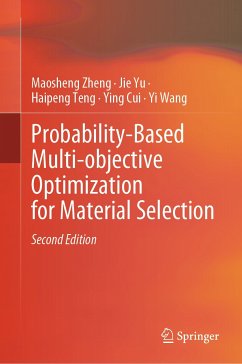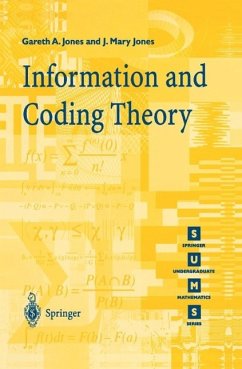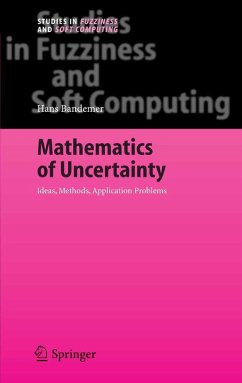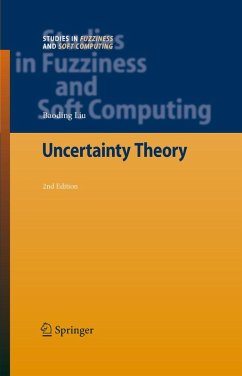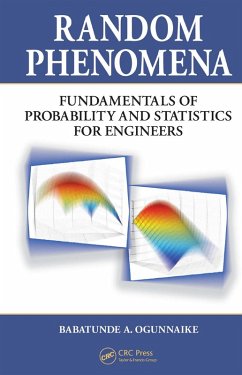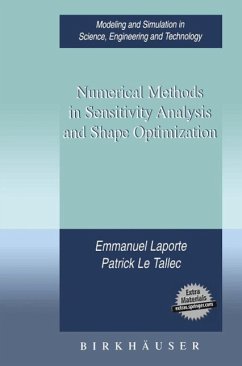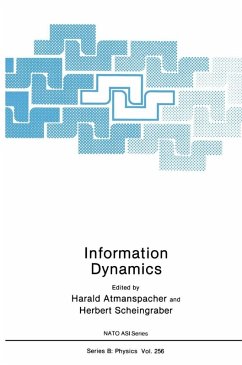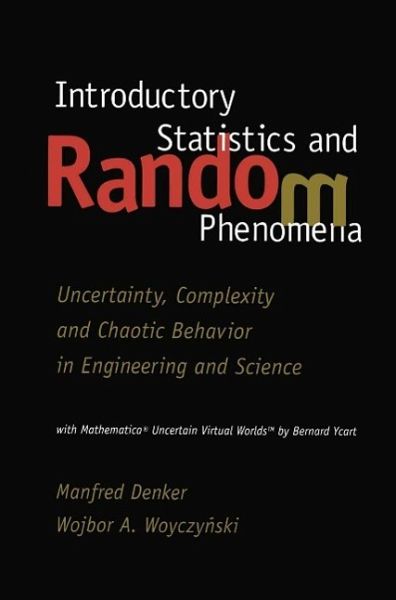
Introductory Statistics and Random Phenomena (eBook, PDF)
Uncertainty, Complexity and Chaotic Behavior in Engineering and Science
Versandkostenfrei!
Sofort per Download lieferbar
Weitere Ausgaben:

PAYBACK Punkte
20 °P sammeln!






Zur Zeit liegt uns keine Inhaltsangabe vor.
Dieser Download kann aus rechtlichen Gründen nur mit Rechnungsadresse in A, B, BG, CY, CZ, D, DK, EW, E, FIN, F, GR, HR, H, IRL, I, LT, L, LR, M, NL, PL, P, R, S, SLO, SK ausgeliefert werden.
- Geräte: PC
- ohne Kopierschutz
- eBook Hilfe
- Größe: 50.18MB
- Text-to-Speech
- E-Mail des Verlags für Barrierefreiheitsfragen: accessibilitysupport@springernature.com
- Keine Einschränkung der Vorlesefunktionen, außer bei spezifischen Ausnahmen
- Bekannt für fehlende wesentliche Barrierefreiheitsmerkmale
Manfred Denker, Penn State University, USA Wojbor Woyczynski, Case Western Reserve University, USA
Produktdetails
- Verlag: Birkhäuser Boston
- Seitenzahl: 509
- Erscheinungstermin: 6. Dezember 2012
- Englisch
- ISBN-13: 9781461220282
- Artikelnr.: 44194736
"This is an innovative book... Well-constructed computer exercises with a bundled easily usable software package 'Mathematica® Uncertain Virtual Worlds®'... The bibliographical notes that accompany each chapter...are clearly written with a keen eye toward encouraging students to enrich their understanding by pursuing additional reading...A lucidly written text and many well-designed computer experiments that enable students to simulate the whole process of some dynamic systems." -Technometrics
"Highly data-oriented, with an unusually large collection of real-life examples taken from industry and various scientific disciplines... The book departs from the standard fare, by [also]
"Highly data-oriented, with an unusually large collection of real-life examples taken from industry and various scientific disciplines... The book departs from the standard fare, by [also]
Mehr anzeigen
including detailed coverage of such contemporary topics as chaotic dynamical systems, the nature of randomness, computability and Kolmogorov complexity, encryption, ergodicity, entropy, and even fractals." -Short Book Reviews (Int'l Statistical Institute)
"The novelty of the book is the integration of ideas about statistics of random phenomena stemming from algorithmic computational complexity, classical probability theory and chaotic behavior in nonlinear systems, and the broad use of Mathematica in the exposition. Moreover, the examples of statistical problems used arise in real-life industrial and scientific lab situations and have been collected from the engineering and scientific literature, or through direct interaction with practicing engineers and scientists. The authors' goal is to give engineering and science students a forward-looking alternative to the usual introductory statistics courses...In summary, I find Introductory statistics and random phenomena an excellent textbook, and I strongly recommend it as an introductory technical statistics course to engineering and science students who have had a basic programming course in computer science. I expect it to becomea classic." -Mathematical Reviews
"The novelty of the book is the integration of ideas about statistics of random phenomena stemming from algorithmic computational complexity, classical probability theory and chaotic behavior in nonlinear systems, and the broad use of Mathematica in the exposition. Moreover, the examples of statistical problems used arise in real-life industrial and scientific lab situations and have been collected from the engineering and scientific literature, or through direct interaction with practicing engineers and scientists. The authors' goal is to give engineering and science students a forward-looking alternative to the usual introductory statistics courses...In summary, I find Introductory statistics and random phenomena an excellent textbook, and I strongly recommend it as an introductory technical statistics course to engineering and science students who have had a basic programming course in computer science. I expect it to becomea classic." -Mathematical Reviews
Schließen
Für dieses Produkt wurde noch keine Bewertung abgegeben. Wir würden uns sehr freuen, wenn du die erste Bewertung schreibst!
Eine Bewertung schreiben
Eine Bewertung schreiben
Andere Kunden interessierten sich für



